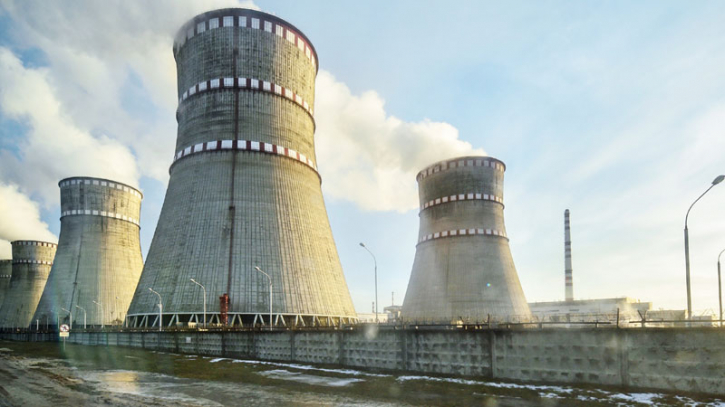Ukraine nuclear plants fully operational for winter

Nuclear power plants located in territory held by Ukrainian capital Kyiv will be fully operational by winter to provide electricity for the country, Ukraine's atomic energy operator said Monday.
"All the power at our disposal will be given to the electricity grid", after the servicing of some reactors before winter, Energoatom chief Petro Kotin told.
.png)
He was speaking at the Yuzhnoukrainsk plant in southern Ukraine to mark the recommissioning of one of its three reactors -- each with a capacity of 1,000 megawatts.
Ukraine currently has three power stations with a total of nine reactors in the territory under its control.
"We will enter winter with nine reactors at full capacity," said Kotin, adding that four reactors currently under repair would be operational before November, with a total capacity of almost 7,600 megawatts.
The fourth nuclear power station, which is also the biggest in Europe, is the Zaporizhzhia plant which houses six reactors. It has been occupied by Russian forces since March 2022.
Kotin added that it was vital to regain control of the Zaporizhzhia plant, with a capacity of 6,000 megawatts, in order to supply electricity to Ukraine.
Since the start of June, Kyiv's troops have led a counteroffensive in the area near Zaporizhzhia in the east and south of Ukraine, in an attempt to retake territory held by Russia since the start of the invasion in February 2022.
According to Kotin, Ukrainian nuclear power stations were not "directly affected" by the wave of Russian strikes on energy infrastructure in the autumn and winter of last year, which cut off power to millions of Ukrainian homes.
Energoatom's chief was not surprised by the statement from Rafael Grossi, the Director General of the International Atomic Energy Agency (IAEA), which found no explosives on the roof of the Zaporizhzhia plant.
In early July, Ukraine accused Moscow of preparing a "provocation", with the army claiming that "objects similar to explosive devices had been placed" on the roofs of reactors three and four.
IAEA experts "had very limited access. They had access to the roofs of two units (out of six). They were not authorised to go to other units... They (Russian troops) simply do not allow access", Kotin said.




